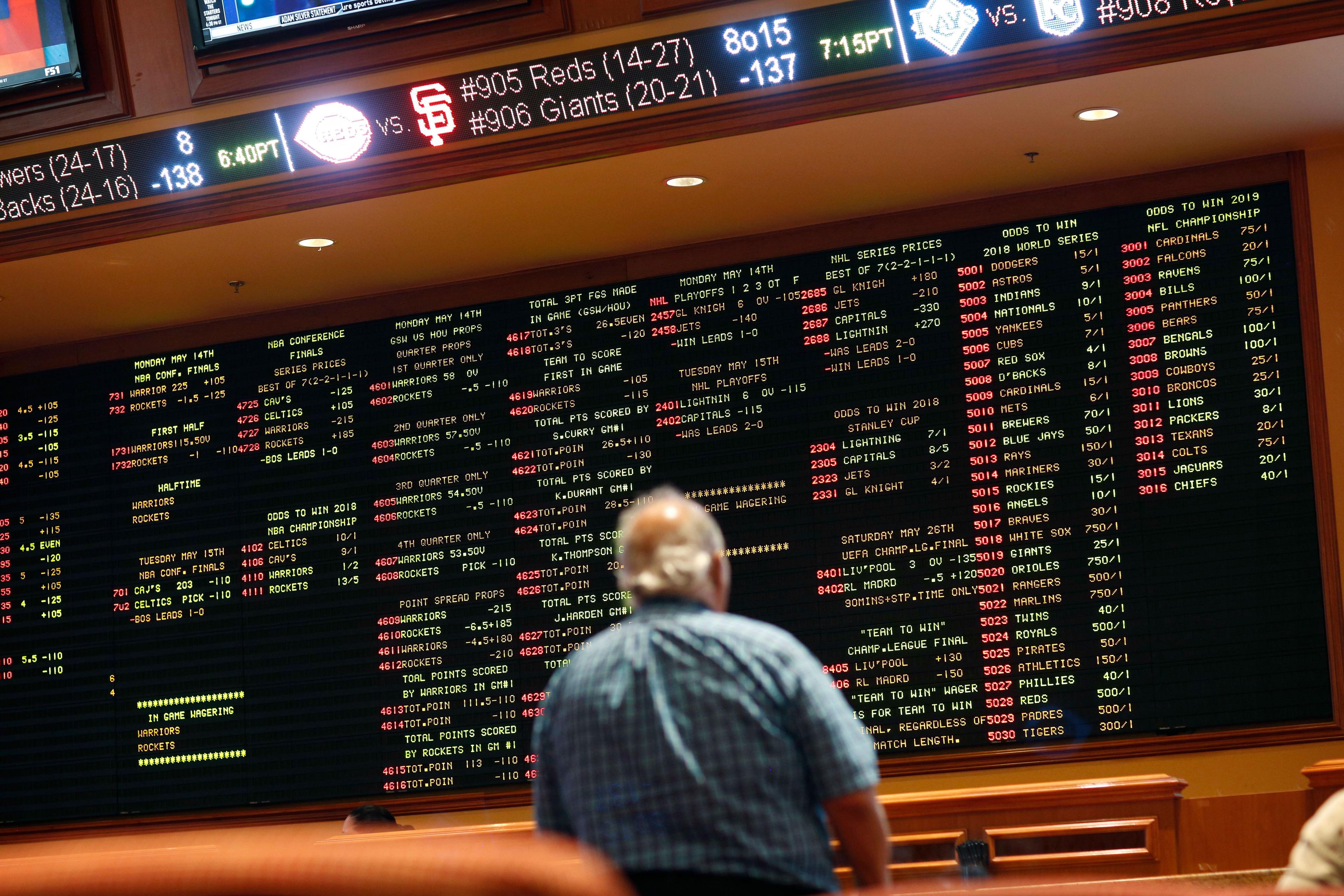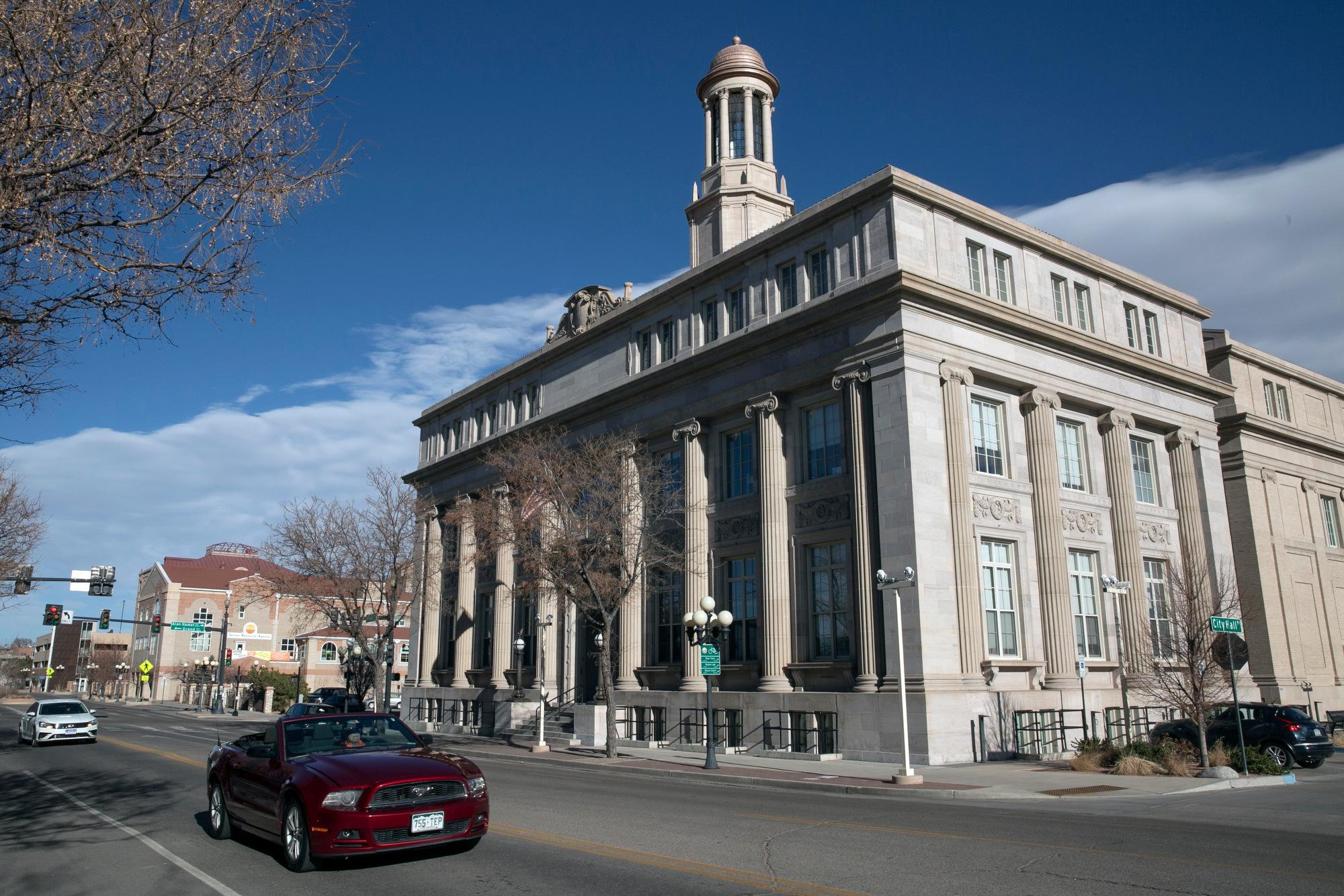
In the sports gambling industry, there’s one sport that stands above the rest: football. Sportsbook managers measure their careers in NFL seasons.
In Colorado, $297 million was wagered between Sept. and Oct., just on NFL games, according to numbers from the Department of Revenue.
October was the most active month yet in Colorado’s fledgling sports betting market, with $491 million wagered on everything from football to basketball to baseball. Even table tennis remains strong. Betters won back $463 million in October, leaving the house with about $29 million in gross revenue.
The numbers were surprising to state regulators, who didn’t expect sports gambling to be this big, this fast.
“I figured that it would probably mature down the road a little bit as you move more players out of the illegal markets,” said Dan Hartman, director of Colorado’s Division of Gaming, which has approved 25 different online sportsbooks. “The choices that the players have in the state of Colorado really has, I think, moved a lot of people, a lot faster out of that black market.”
More choice has led to fierce competition for betters, requiring companies to step up ad buys and offer generous incentives to sign up and stay in their app.
Hartman said there have been up to 900,000 downloads of the betting apps in Colorado (many users probably have multiple accounts, or are not active). More than 98 percent of wagers were made online in October.
That illustrates that few players are driving up to Colorado’s casinos — based in Black Hawk, Central City, and Cripple Creek — to place sports bets.
“So on the retail side, it's not really driving traffic up the hill,” said JJ Garcia, vice president of operations for Jacobs Entertainment, which operates The Lodge Casino. “But it does obviously add to the value to what the casino does.”
The Lodge Casino partnered with SuperBook Sports, to build and operate the online app and build a physical Las Vegas-style sportsbook in the casino, filled with TVs and nice chairs.
- June 2021: Colorado Got $6.6M From Its First Year Of Sports Betting. Where Does That Money Go Now?
- September 2020: Basketball, Baseball Drive An August Sports Betting Surge
- July 2020: Colorado Banked $96,000 In The 1st Month Of Sports Betting
- November 2019: Prop DD Won. Here’s When And How You Can Place Your 1st Colorado Sports Bet
Garcia said it adds another activity for people to do between slots and poker.
“It's something that you could take a break from gaming and go watch a game and place a bet,” Garcia said.
Still, all the activity is online, and the race for users is playing out on TV between a few large companies — Caesars, DraftKings, FanDuel, and BetMGM.
“It's a land grab right now,” said Kristin Mackey, head of marketing for SuperBook Sports, one of the lesser-known apps in Colorado. Mackey said the advertising may soon change as other states launch. “I think we'll see that start to dial back. We've already started to see that dial back a little bit, as other markets open.”
But the ads, the lack of limits, and the ease of setting up accounts and betting at home have some people worried about the potential for addiction.
“There's been lots of concern regarding that advertising,” said Peggy Brown, incoming president of the board for the Problem Gambling Coalition of Colorado. “It can be a trigger for those that have problems.”
Brown, a recovering gambling addict herself, personally answers phones to the helpline, which she said has seen increased call volume. She was emotional after getting word that state lawmakers and regulators are planning to address problem gambling in the new year, possibly through legislation and new rules.
In the 18 months of sports gambling in Colorado, casinos have collected $107 million in net proceeds and the state has collected $12 million in taxes. Most of the tax revenue is earmarked for water projects, but there’s money for problem gambling too.
Hartman, with the state Division of Gaming, said they will look to speed up delivery of money to get therapists up to speed on problem gambling, and possibly offer users the ability to easily lock themselves out of all betting activities in the state.
“It's our responsibility as regulators, as the state, it's the responsibility of the industry, to really make sure that if somebody's got an issue, there's gotta be a safety net.”









